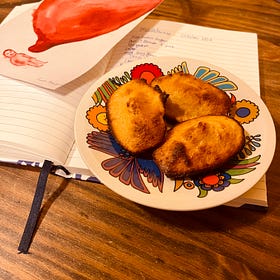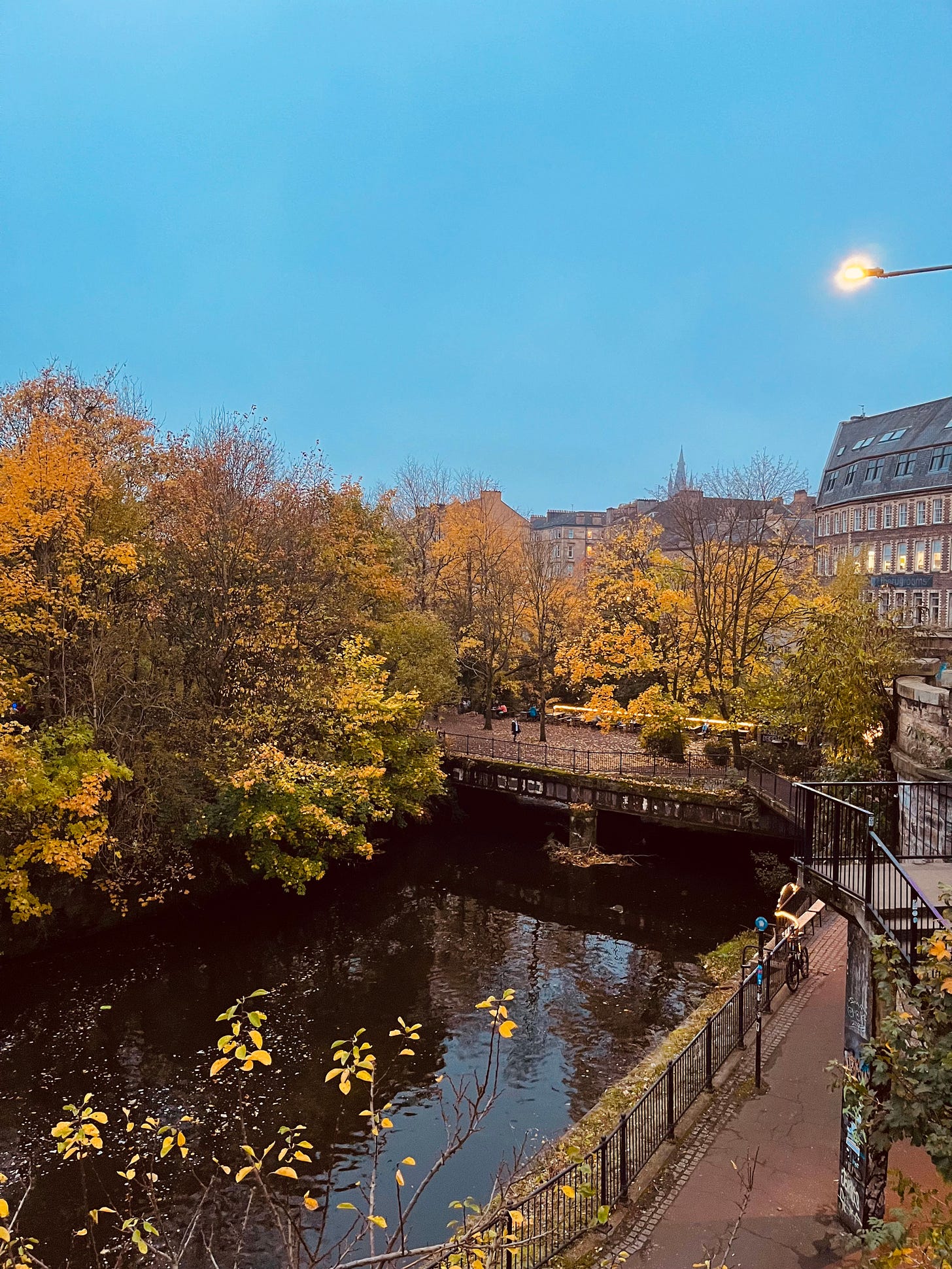Bonjour, you. If you’re new to The Onion Papers, Peels are a round-up feature at TOP, a retrospective and writer’s almanac which comes out on the first Monday of each month. Happy reading and clicking,
Margaux
Dear October, you’ve felt like a stranger, shedding slowly and switching mood fast. The Mount Fuji was snowless for the first time since record began, one hundred and thirty years ago, and my geraniums flowered. Your skies were pink too, tinting golden against the bricks of the mirroring tenement building outside my window, your clocks taking us backward in a hope to stretch the days longer, as if to imply – slow down, observe, notice. Save your energy, winter is around the corner.
bread update
Getting to know a new oven isn’t an easy flirt. Unknown signs and consequential settings, disagreements about how hot it should be, alarming sounds, to grill or not to grill. . .I sent multiple photos to baker friends and burnt the cumin cauliflower. I gave up on the oven business for a few days, but I focused on feeding wee Billy daily. It’s taken some time for the starter to find its space in the new kitchen, which has switched from facing north to west, and came the morning when Billy perked up, reliably bubbly and strong enough.
200g wholemeal
200g white flour
100g spelt wholemeal flour
120g starter
300g water
A few years ago, I was spending my nights writing about a certain Claude and her yellow kitchen from bed. The Yellow Kitchen, my debut novel, published on 7th July 2022 and, on 21st October 2024, I too baked my first loaf in a kitchen with yellow walls. The bread was crusty – Claude has taught me as much along the years and I like to think that I made her proud with my knead.
Score the bread loaf. Preheat the oven to 220C. Bake in an iron cast casserole with the lid on for 30 minutes. Reduce the heat to 200C and remove the lid from the casserole. Continue to bake for another 15 minutes.
(I shared my (unreliable) sourdough bread recipe and routine before.)

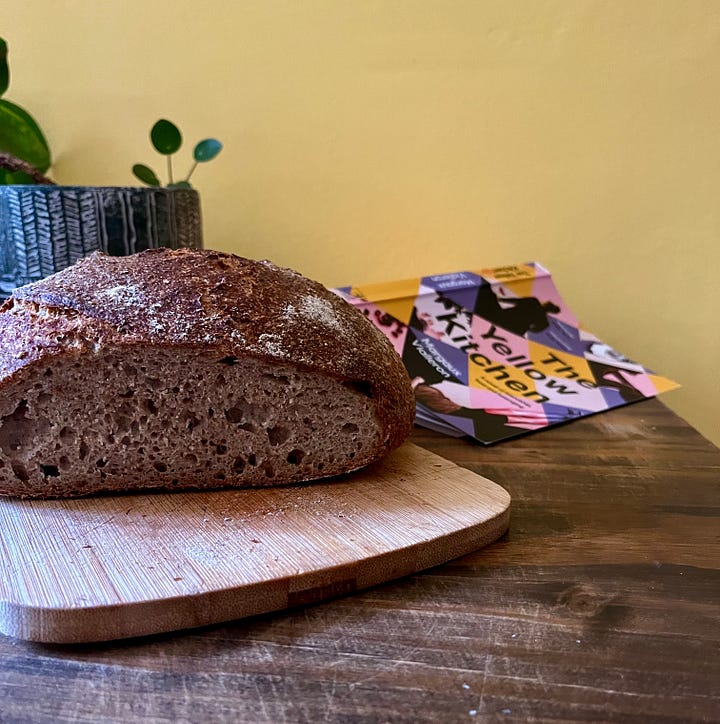
reading, listening
In audio, I couldn’t get enough of Robin Wall Kummerer’s Braiding Sweetgrass. From reflections on language to exercises in paying attention, this is an ode to the wisdom of nature and the power of feeling connected with the nature around us. ‘Once you know corn as a sister, it's hard to unknow it.’ Kummerer tells us and, once you reckon with Braiding Sweetgrass, I’d say that it’s pretty hard to unknow it too.
On paper, I read the time-bending Third Love by Hiromi Kawakami (translated from the Japanese by Ted Goossen) in one sitting during a long train journey. The novel follows Riko, who finds herself trapped in a loveless relationship, until she learns the ‘trick of living inside her dreams’ and, each night, she sinks into another life, from the Middle Ages to the 21st Century, and to finding her third great love. This one is a fantastic escape in the shape of a book.
I joined the Intermezzo party. I have nothing to add to the Sally Rooney discourse, or interest, but I will say in my name here that I enjoyed reading the novel immensely. It was daring on a sentence level, it murmured to my fidgety brain, it moved me, and I loved the exploration of brotherhood and grief.
Online, I draw your attention to Doha Kahlout’s piece for Vittles, on how occupation and war have severed the people of Gaza from their culinary history: When Food Doesn’t Taste Like Home.
‘My generation – who grew up in the shadow of successive wars on the Gaza Strip, house raids, killings, and checkpoints in the West Bank and across occupied historical Palestine – has its own set of associations with food. Tomatoes remind us of alayit bandora, which is often the last meal of the fida’i. For Gazans who have lived through five wars since 2008 – the most recent of which is still ongoing – certain foods arouse intense antipathy, because we have been forced to eat them for so long when nothing else is available. We are sick of tinned food and the meals we’re forced to make with them – we call them war meals – which are nutritionally poor yet rich in humiliation and grief.’
— Doha Kahlout (translated by Katharine Halls)
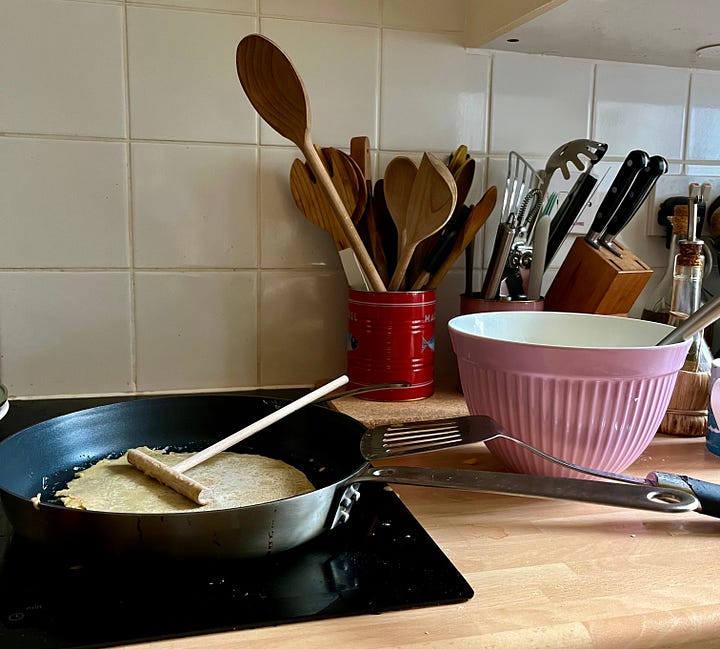
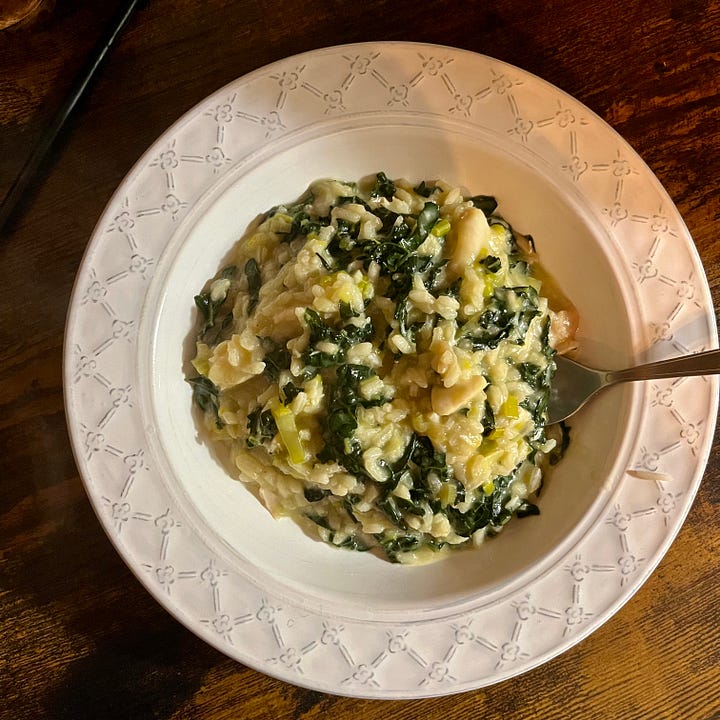
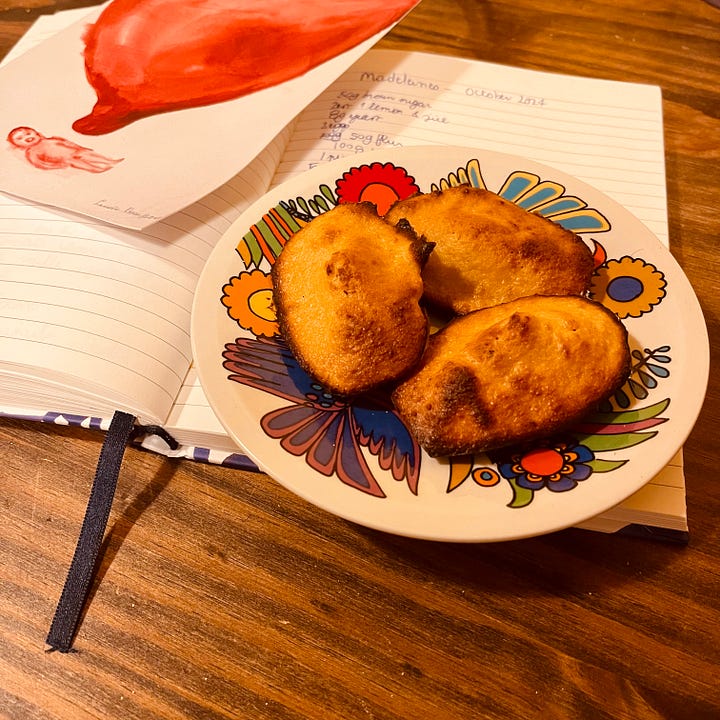
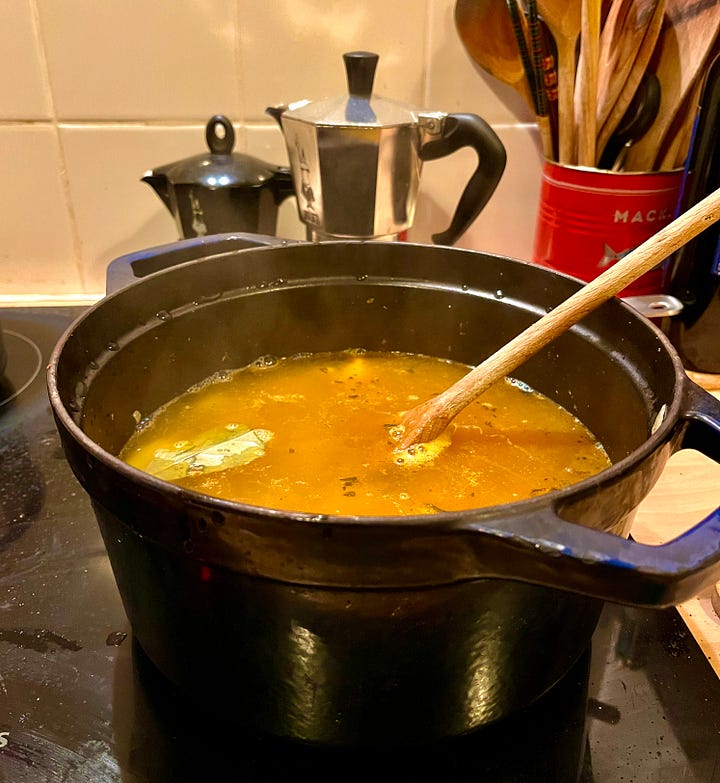
in the kitchen
In October, I cooked plenty of remedies to nurse the cold that settled inside my bones. Short and spoonable recipes are my love language, so here you go:
Rose soup: prepare your favourite minestrone or brothy, veggie soup. Add one generous teaspoon of harissa.
Butternut squash curry: peel and chop the squash in cubes. In a bowl, mix the squash cubes with a pinch of cold water, paprika and salt, and set aside. In the meantime, in a casserole, gently fry some turmeric, fennel seeds, ground cumin, one peperoncino and one onion. Add some carrots (peeled and sliced) and the squash. Cover with one glass of boiling water, add a vegetable cube and mix well. Cook for 8 minutes. Reduce the heat. Add half a tin of tomato sauce, 1 can of coconut milk and the zest of 1 lemon. Simmer on a low heat for 20 minutes. Add spinach (I also added some broad beans as I had them in the freezer) and cook for another 10 minutes, or until the curry will reach a consistency that appeals to you. Serve with rice, or else.
Romanesco and fish bake: preheat the oven to 180C. Slice one onion, chop some parsnips and one Romanesco. Drizzle some olive oil in a baking tray and spread the vegetables inside. Cut some fish filets in square chunks and lay the fish over the vegetables. Drench with veggie broth and half a tin of tomatoes. Bake for 30 minutes.
Crêpes before drilling hour on a Sunday morning: grab a teacup and a bowl. Fill the cup with 75% of white flour and 25% of spelt wholemeal flour. Break two eggs and add 1 teaspoon of vanilla extract and a pinch of salt. Mix. Fill a third of the teacup with cold water and pour slowly into the preparation, mixing continuously. Rest the preparation for 30 minutes under a kitchen towel. Cook in a flat pan and serve with the filling(s) of your choice.
Cod and cavolo nero risotto: I was too sick for that one, so that’s down to L’s genius. He says that he used one leek, one peperoncino, plenty of cavolo nero, one cube of veggie stock and one cube of fish stock, and cod fillets.
from the Onion Papers
#28: pumpkin soup or an accidental, seasonal recipe and a story of debatable moralities for the annotated recipes series.
*
Movable spiders: a dispatch written between two flats, on change and practice, nesting, the colour red and seeing Louise Bourgeois’ gouaches at the Museo del Novecento in Florence. This one also includes a citrusy and dairy free recipe for madeleines.
Movable Spiders
Did you gasp when you saw it? Trapped inside the sink, first thing in the morning as you poured yourself a glass of cold water. Or did you open the window swiftly, without making a fuss after you spotted it hanging at the corner of the curtain? I know, that one was imposing – as large as your hand! – as it crawled through the living room mid-episode of …
looking ahead (Glasgow, GMT)
The gardens turn monotone and most of the work around it should be rootless, tasks of maintenance as the sky dims to grey, and the moon will be full in Taurus on the fifteenth day of the month; November is a fair and grounding month. It’s a good time to remember and to honour those who have gone, picking chestnuts and keeping one in your pocket to spook the seasonal colds away. Chrysanthemums will perk a table. In the kitchen, warm endive salads (mustard dressing) for lunch; chard and lentils soup for dinner; looking ahead, preserve rosemary and garlic in olive oil, which will do marvels for a bowl of minestrone or a plate of pasta e fagioli. Not all souls hibernate equally.
Margaux
Thank you for reading. If you enjoy this newsletter, you can subscribe and come back for seconds <3







